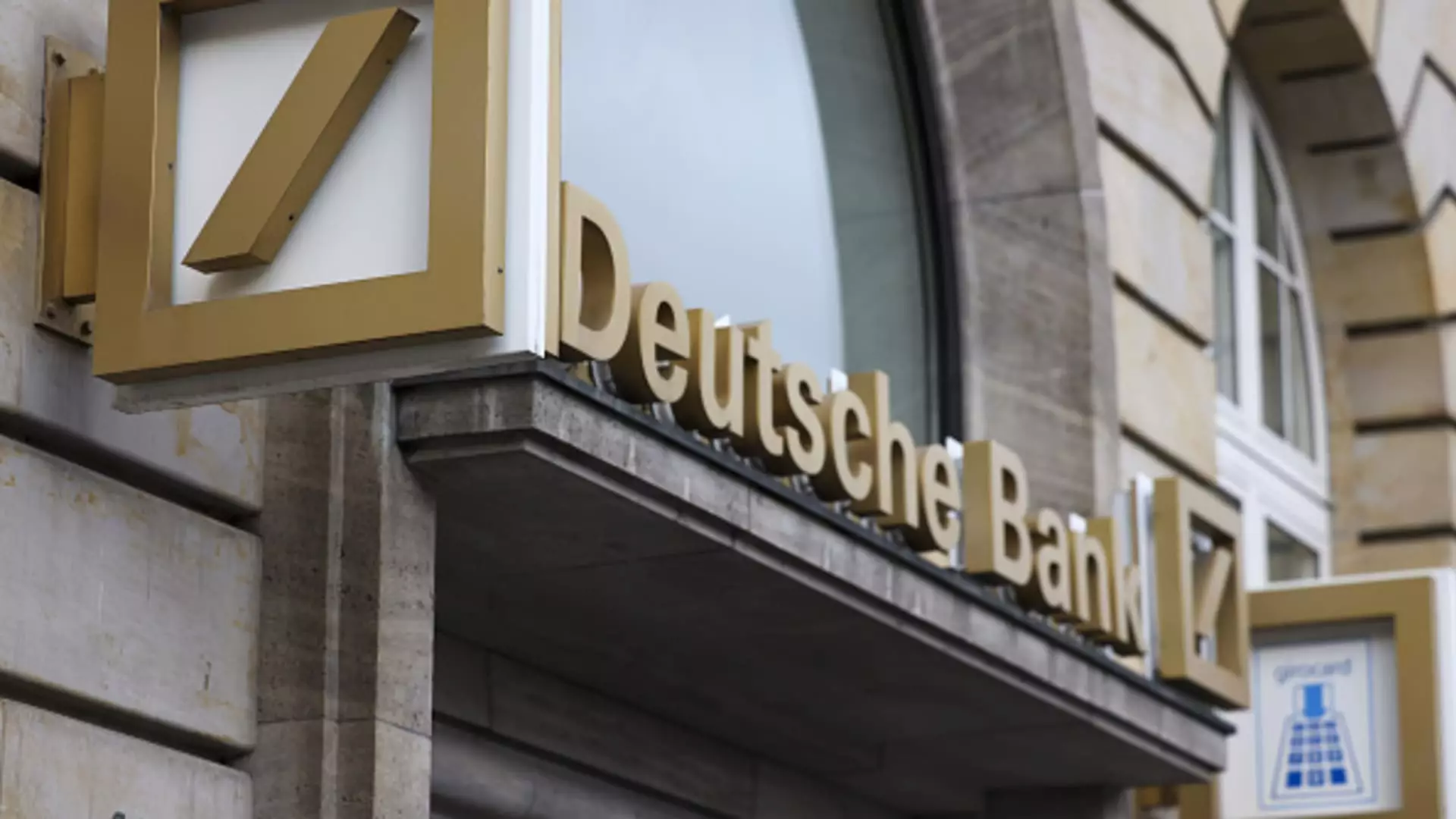Germany’s premier banking institution, Deutsche Bank, has exhibited impressive financial resilience as it reported a staggering 39% year-on-year rise in net profit for the first quarter of the year, showcasing a figure of 1.775 billion euros (approximately $2.019 billion). This unexpected profit growth not only surpasses the analysts’ predictions of around 1.64 billion euros but also marks the bank’s most successful quarterly profit in nearly fifteen years. The rise stands as a testament to the bank’s strategic maneuvers and robust performance in the investment banking sector, even as the European economic landscape grows increasingly volatile due to international tariff policies, particularly from the United States.
Such financial success is indicative of the bank’s ability to adapt to an environment rife with uncertainty. The remarkable profit figure, when compared to the paltry 106 million euros reported in the preceding quarter, signifies that Deutsche Bank is not merely recovering but potentially thriving under pressure. The report highlights a 10% year-on-year increase in total revenues to 8.524 billion euros, reinforcing the notion that Deutsche Bank is carving out a substantial niche in a tumultuous market.
A Deep Dive into Investment Banking
The success attributed to Deutsche Bank’s investment banking sector cannot be overstated. The core investment banking division alone reported net revenues of 3.4 billion euros in the first quarter, which represents a 10% rise from the previous year. Notably, the fixed income and currencies (FIC) unit played a pivotal role in this surge, showing a remarkable 17% increase in revenues, even though origination and advisory segments experienced an 8% decline.
This duality within the investment banking performance demonstrates Deutsche Bank’s shrewd ability to pivot and focus on its strengths. As interest rates have plummeted, the reliance on traditional loan income has waned, compelling Deutsche Bank to double down on its investment solutions. This strategic shift not only stabilizes its income streams but also positions the institution as a formidable player navigating the complexities of modern finance.
Risk Management and Credit Provisions
Intriguingly, while Deutsche Bank has enjoyed robust profit growth, it has simultaneously recognized the importance of prudent risk management. In response to the geopolitical and macroeconomic uncertainties primarily stemming from U.S. policy, the bank increased its provisions for credit losses to 471 million euros in the first quarter, up from 420 million euros in the preceding quarter.
This move reflects the bank’s awareness of potential pitfalls while navigating through a minefield of macroeconomic variables brought about by evolving trade policies. Deutsche Bank CEO Christian Sewing and Chief Financial Officer James von Moltke have articulated a thoughtful approach to risk, placing the bank’s financial health at the forefront of their strategic decision-making. By acknowledging uncertainties and preparing for potential adverse outcomes, Deutsche Bank not only secures its present but also safeguards its future.
The German Economic Landscape
The political climate in Germany is shifting, offering a backdrop of stability that could translate into further growth for Deutsche Bank and the overall financial sector. Under the leadership of a centrist coalition government, there is a renewed sense of confidence flowing through the markets as Berlin has initiated reforms aimed at bolstering fiscal policies. These reforms, particularly centering around increased defense expenditure, have spurred hopes for increased investments and a revitalization of regional equities.
Stefan Simon, CEO of Deutsche Bank Americas, has emphasized the necessity for strengthening European competitiveness in light of a broader economic transformation. The potential ramifications of a trade war, particularly emanating from U.S. tariffs, pose undeniable challenges; however, Simon remains optimistic about Deutsche Bank’s prospects in credit trading, mergers and acquisitions (M&A), and overall corporate finance activities.
In a unique twist, Deutsche Bank has managed to turn looming threats posed by tariffs into opportunities, particularly in its fixed income trading operations, highlighting the institution’s adaptability and resilience amid external pressures.
The Future Looks Bright
Deutsche Bank’s strategy to hedge against interest rate risks for the impending year has left the bank in a confident position, allowing it to forecast growth opportunities not only in investment banking but also across its corporate and private banking sectors. The sentiment is clear: the bank is optimistic about the trajectory of its operations, bolstered by a supportive fiscal and political environment.
The potency of Deutsche Bank’s turnaround is rooted not just in financial metrics, but also in a growing recognition among investors regarding the potential of the German and broader European economy. As Deutsche Bank continues to navigate through a landscape marked by uncertainty, its proactive approach and strategic foresight may well pave the way for future successes, asserting its place as a key player in the global banking arena.

